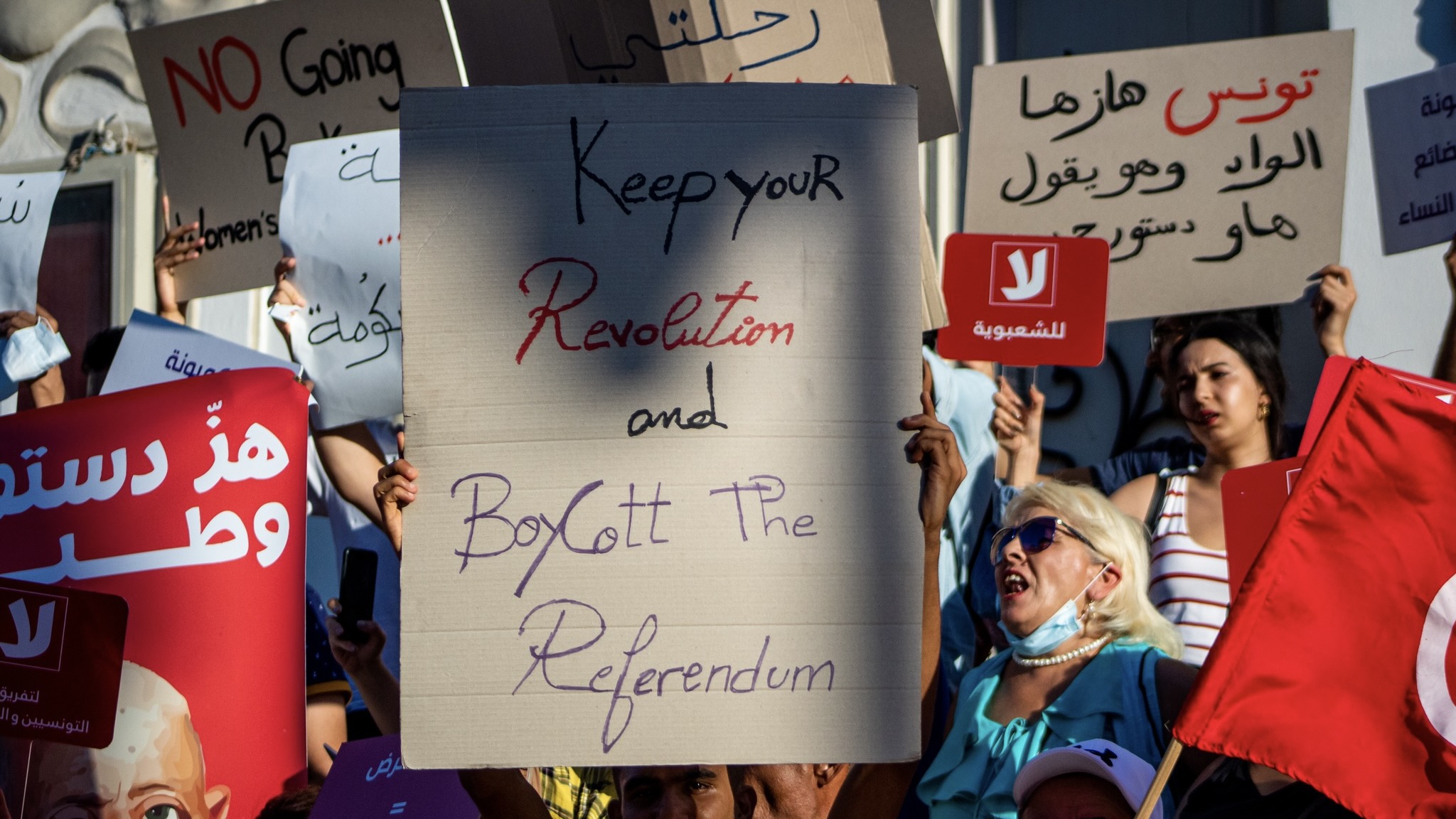One year after President Kais Saied sacked Prime Minister Hichem Mechichi, the Tunisian people were invited to vote in a referendum to adopt a new constitution for the country on July 25. The voting occurred amid widespread calls for boycott of the referendum by major political parties and civil right groups.
According to reports, turnout in the referendum within Tunisia was only 13.6%. On Saturday, Tunisia’s election commission reported that only 4.5 to 6.5% of Tunisians living abroad had voted in the referendum so far, TAP reported.
The new constitution, drafted after a so-called national dialogue, would replace the existing one formulated in 2014 following the Tunisian revolution of 2011. A draft of the new constitution released earlier this month gives the president more powers over legislation and the judiciary than the existing document. The draft has further enraged the opposition, who claim that it is an attempt to create an absolute presidency and individual rule for Saied.
Parties such as the Islamist Ennahda, Democratic Progressive Party, Free Destourian Party, and the leftist Workers’ Party of Tunisia, among others, have been leading various campaigns asking the people to boycott the referendum, claiming that the process through which the new constitution was drafted is not democratic but illegitimate.
Large-scale protests have been going on in Tunisia since the president’s power grab last year. Last Friday and Saturday, several thousands took to the streets in capital Tunis against the referendum. The police forces tried to brutally suppress the demonstration and arrested scores of human rights activists and members of the Workers’ Party of Tunisia.
The proceedings of the committee which drafted the constitution have also been questioned on the grounds that its appointment was arbitrary. The committee was not allowed to consult any political party while drafting the constitution. Tunisia’s largest trade union, the Tunisian General Labor Union (UGTT), also boycotted the consultation with the committee despite being invited. It claimed that the so-called national dialogue was unilateral and arbitrary.
The committee was headed by Sadok Belaid, a law professor. The opposition claimed that he was handpicked only because he is one of Saied’s confidants. However, even Belaid claimed that the draft he submitted to the president was edited by Saied and “contains considerable risks and shortcomings” which could pave the way for “a disgraceful dictatorial regime,” Al-Jazeera reported.
According to the latest reports, voting on the referendum began early on Monday and the voter participation rate is expected to be low.
Voting started an hour ago in the constitutional referendum. This voting center in Bardo, meters away from Parliament which President Saied suspended 1 year ago, has seen less than 100 people turn out so far of the >8600 registered here, but they stay open to 22:00.#Tunisia pic.twitter.com/pitDWQEwvI
— Fadil Aliriza (@FadilAliriza) July 25, 2022
President Saied had dissolved the parliament last year and suspended the 2014 constitution. He also sacked a large number of judges after accusing them of inefficiency and harboring terrorists. He has been accused by the opposition parties of carrying out a coup against the 2011 revolution in order to establish his personal rule. Saied had alleged that most of Tunisia’s ruling class is corrupt and inefficient. He cited COVID-19 mismanagement and the deteriorating economic condition as examples of their inefficiency.
Saied has now claimed that low turnout will not affect the prospects of the referendum. He accused the opposition parties of using corrupt means to scuttle the referendum process and asserted that “we will not let Tunisia fall prey” to those tactics, Al-Jazeera reported.





